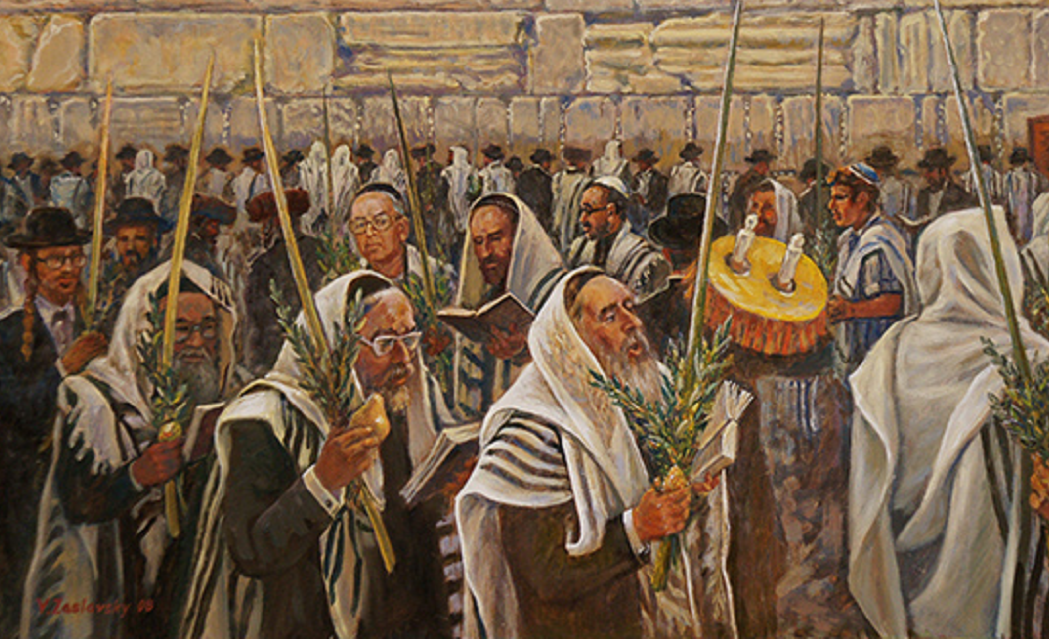
Likutei Moharan: Created Just for Me
When Rebbe Nachman says that we must look at the world as if it was created just for me; that's not a license to be selfish but a mandate to take responsibility…

Translated by Aaron Yoseph
The following lesson is Rabbi Kivak’s elaboration of Likutei Moharan I:5
Rebbe Nachman quotes the Gemara and says:
“Because every person has to say, “The world was created for me,” (Sanhedrin 37).
This as a warning to not give false testimony against someone, since the whole world was created for each person. The Rebbe wants to teach us a fundamental teaching here. He opens with this phrase, adhering us to be careful to remember this. Because there are many thieves going around, who also say that “The world was created for me,” and they are completely sunken in this world. But they’re making a mistake, because the world they have is a world of confusion and illusions. The true world is a world of joy and life. This is what was “created for me.”
This statement contains within it the yolk of all Torah and mitzvot. That we should each be aroused to know, “I am Hashem’s emissary in this world. At every moment there is something asked of me.” This is the meaning of the world being “created for me,” – that I’m profiting here. Crowning Hashem in this world is a tremendous  joy. I have what to do. You say to someone – “I haven’t got time to talk, I have a meeting with the King!” Oho! We truly have such a thing.
joy. I have what to do. You say to someone – “I haven’t got time to talk, I have a meeting with the King!” Oho! We truly have such a thing.
In Nissan the world was created, but who was it created for? For the big snakes and dinosaurs? Who was it created for?
At the exodus from Egypt, Hashem took us out from the bounds of nature and revealed to us Who created everything. He revealed to us that we are His firstborn child Yisroel, and that we possess souls that come from the deepest depths of the spiritual worlds. No-one else can correct anything, because they fell. Only the souls of the children of Avraham, Yitzchak, and Yaakov were capable of going down into Mitzrayim, and into the process of exile, in order to correct and elevate the world.
And each person has to say that the whole world – everything that has ever been – was only created for me. Even if I can’t see, understand, or connect to this. It was created just for me. Only I can fix it. Every single situation. I must assume responsibility, as the Rebbe explains further:
“We find, that when the world is created for me, I need to look and contemplate the correction of the world at all times, and make up whatever the world is lacking, and to pray for them,”
“We find” – this expression implies that we just been through a long explanation, and we’ve come to the conclusion, “we find…” This is to teach us that this one statement of, “The world was created for me,” contains everything. When a person arouses himself to this every day in Hitbodedut, it shatters all illusions. There’s nothing else – “I’m an emissary of Hashem in this world, and I’m in the middle of my job. Even sleeping is part of my mission, and whatever depths I’ve gone down to – it’s all been created for me – for me to fix.”
Since the world was created for me, I have to be concerned with correcting whatever is wrong in it, and bring it to its perfection. When you’re really serious and want to fix things, the way to do it is through prayer.
The Rebbe adds:
“This matter of prayer takes two forms – before the decree we pray the normal order of prayers, and there is no need to clothe the prayers.
Before the decree praying normally is sufficient – Shacharit, Mincha, Maariv, the prayers printed in seforim, or a person just praying what is on his heart.
But after the decree there is a need to clothe the prayer,
But after the decree – when there are things to fix and you can’t do it – then it’s time to clothe your prayers. We don’t know how to do this, but we can connect ourselves to the true tzaddikim who do.
so that the angels who stand on the left side won’t understand and will not object,
The Rebbe talks here as if he’s speaking to a friend of his, who’s on his level, who understands how to do such things, “so that the angels won’t understand and won’t object.”
We don’t understand what all these things mean – before the decree, after the decree, clothing prayers. But there remains a small problem. Even if I know what to do – that before a decree I can pray normally, and after the decree I need to clothe my prayers in a saying, even if I know what that means and how to do it, but the small problem remains – how am I to know whether it’s before the decree or after?
This is the only Torah where the Rebbe begins by talking about very high levels of serving Hashem. The simple understanding here is that the Rebbe is talking to very great Tzaddikim, and further on in the Torah is where the Rebbe talks to us, and gives us the advice that we need to use. But since we are connected to the Tzaddik, the Rebbe mixed the two together. We are connected to the true Tzaddik who does know how to clothe his prayers. When a person falls and can’t see a way out, the only way to redemption is through the power of the Tzaddikim. When you connect to the Tzaddikim who are working at this, you also get this strength.
“But how can we know whether it’s before the decree or after? By the mitzvot that we perform…”
That “we” perform – meaning the Tzaddikim who do mitzvot in this way,
“We can know”
“We” – meaning the Tzaddikim,
“whether it’s before the decree or after, and specifically when the mitzvah is performed with such joy, to the extent that the person doesn’t want any reward in Olam Haba for it.”
The Tzaddikim so much love fulfilling Hashem’s will, their hearts are so pure. This is the joy of the Tzaddikim and Chassidim who rejoice with Hashem, and don’t think about themselves,
“All he wants is that HaKadosh Baruch Hu should provide him with the opportunity to perform another mitzvah, in the merit of this mitzvah,”
If you want to reward me, then help me to get even closer to You. This will be my reward.
“As our Sages taught, (Pirkei Avos, 4) “The reward of a mitzvah is a mitzvah,” – because he delights in the mitzvah itself.”









Tell us what you think!
Thank you for your comment!
It will be published after approval by the Editor.